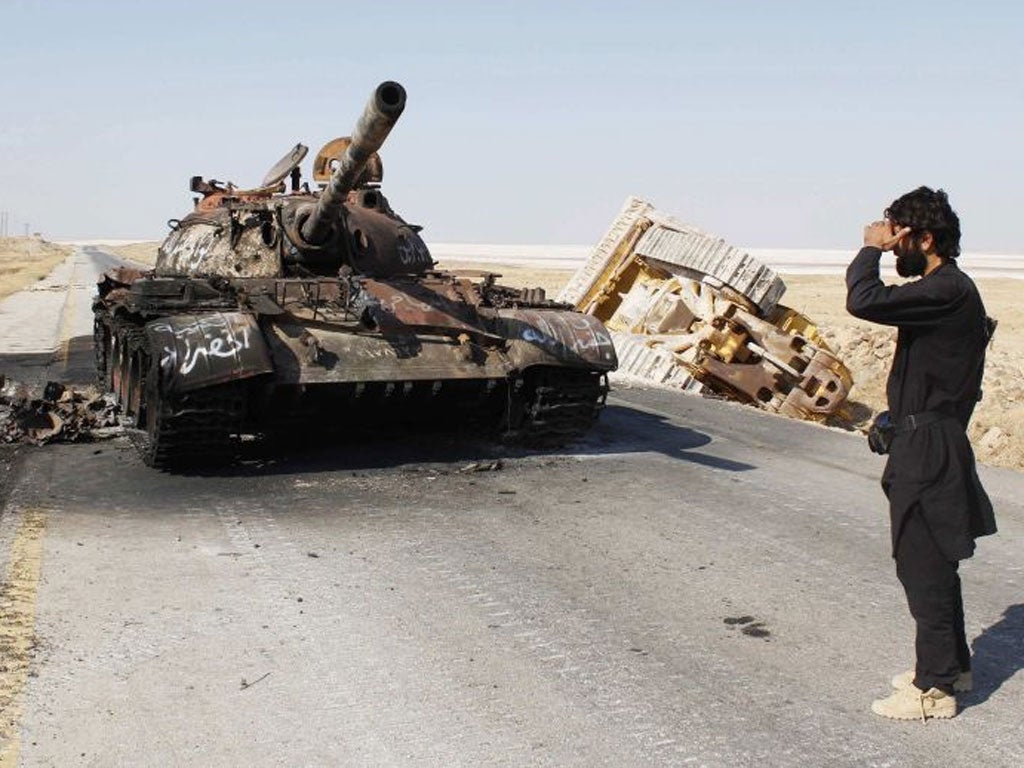Beyond reasonable doubt? Evidence on Syrian chemical atrocity fails to make a case for war
Critics say the Joint Intelligence Committee’s report fails to make watertight case for British intervention

The Joint Intelligence Committee produced the dossier on Saddam Hussein’s supposed WMD arsenal, used by Tony Blair’s government to justify joining George Bush’s invasion of Iraq; a deeply flawed document which became a byword for manipulation and fabrication, even of intelligence to suit a political agenda.
The report the JIC presented yesterday into another tranche of WMDs, this time belonging to Syria’s Bashar al-Assad, was written in much more measured tones, acknowledging that much of it was from open source material – videos, testimonies of patients and medics – and not really revealing anything significantly secret.
In the process it failed to make a case for war. There was no evidence directly linking President Assad and his coterie to the attack, the blame attached to the regime was by default, inasmuch it was held the opposition did not have the wherewithal to mount such an operation. There is a key difference between the Iraqi and Syrian regimes when it comes to WMDs. There is little doubt the latter does have chemical stockpiles. And, as some of us witnessed on the ground, its forces are capable of startling, casual brutalities.
But the JIC document does nothing to answer the question asked by many: why would the Damascus regime launch such a sustained assault with chemical weapons with UN inspectors in a hotel a dozen miles away and its forces making advances on the ground using conventional weapons.
David Cameron’s claim in the Commons that Assad was testing the boundaries makes little sense. He admitted that motivation for the attack was the issue which the JIC had the hardest task on reaching a conclusion. In a letter to Mr Cameron, the JIC’s chairman, Jon Day, stated the committee had “high confidence” in the accuracy of all its assessments. But there was one significant qualification: “Except in relation to the regime’s precise motivation for carrying out an attack of this scale at this time – though intelligence may increase our confidence in the future.”
Persistent reports of intercepted telephone calls, said to be by the Israelis, portray a dysfunctional Syrian military command, battered by two and half years of savage conflict, in which questions are asked about who actually gave the order to fire. Does this point towards a rogue officer, or, if one is into conspiracies, the agents of an enemy state? The Saudis have been accused as being responsible by regime supporters, without any evidence to back it up. In any event mounting such a “false flag” operation, with multiple firing points, would mean a significant infiltration of Assad’s military.
Mr Day stated he had seen “highly sensitive” intelligence to support the view the regime launched the attacks to clear the opposition from strategic parts of Damascus. Using chemical weapons? At such at a time, why? We are none the wiser. In fact the JIC adds there was “no obvious political or military trigger for regime use of CW [chemical weapons] on an apparently larger scale now” – given the presence of the UN inspectors.
Assad forces, said the JIC report, carried out 14 separate chemical attacks. Does this include Khan al-Assal near Aleppo, in March this year, which the regime blamed on the rebels and asked the UN to investigate? The JIC simply states that a number of (unidentified) opposition groups “continue to seek a CW capability”. It should be noted at this point, the Ghouta massacre, which triggered the proposed Western military action, was blamed by the regime and its Russian and Iranian allies on the rebels. They have so far failed to provide evidence of this.
One attempt at proving overarching culpability by the JIC is the statement that the use of chemical weapons had “probably been delegated” by President Assad to “senior regime commanders, such as [*]”. Who is the commander, is it Maher, the President’s brother, whose 155th Brigade, 4th Armoured Division, was accused of firing chemical-weaponised artillery rounds?
Perhaps answers will emerge in a separate intelligence report due from the US administration – But its strength is already being questioned by some intelligence officials.
Join our commenting forum
Join thought-provoking conversations, follow other Independent readers and see their replies
Comments
Bookmark popover
Removed from bookmarks